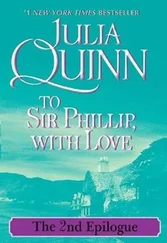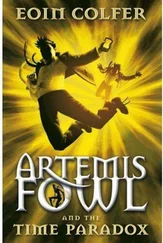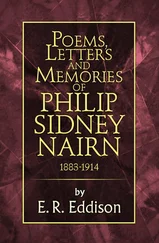Emma Marshall - Penshurst Castle in the Time of Sir Philip Sidney
Здесь есть возможность читать онлайн «Emma Marshall - Penshurst Castle in the Time of Sir Philip Sidney» — ознакомительный отрывок электронной книги совершенно бесплатно, а после прочтения отрывка купить полную версию. В некоторых случаях можно слушать аудио, скачать через торрент в формате fb2 и присутствует краткое содержание. Жанр: foreign_prose, на английском языке. Описание произведения, (предисловие) а так же отзывы посетителей доступны на портале библиотеки ЛибКат.
- Название:Penshurst Castle in the Time of Sir Philip Sidney
- Автор:
- Жанр:
- Год:неизвестен
- ISBN:нет данных
- Рейтинг книги:4 / 5. Голосов: 1
-
Избранное:Добавить в избранное
- Отзывы:
-
Ваша оценка:
- 80
- 1
- 2
- 3
- 4
- 5
Penshurst Castle in the Time of Sir Philip Sidney: краткое содержание, описание и аннотация
Предлагаем к чтению аннотацию, описание, краткое содержание или предисловие (зависит от того, что написал сам автор книги «Penshurst Castle in the Time of Sir Philip Sidney»). Если вы не нашли необходимую информацию о книге — напишите в комментариях, мы постараемся отыскать её.
Penshurst Castle in the Time of Sir Philip Sidney — читать онлайн ознакомительный отрывок
Ниже представлен текст книги, разбитый по страницам. Система сохранения места последней прочитанной страницы, позволяет с удобством читать онлайн бесплатно книгу «Penshurst Castle in the Time of Sir Philip Sidney», без необходимости каждый раз заново искать на чём Вы остановились. Поставьте закладку, и сможете в любой момент перейти на страницу, на которой закончили чтение.
Интервал:
Закладка:
Marshall Emma
Penshurst Castle in the Time of Sir Philip Sidney
PREFACE
For the incidents in the life of Sir Philip Sidney, who is the central figure in this story of 'the spacious times of great Elizabeth,' I am indebted to Mr H. R. Fox Bourne's interesting and exhaustive Memoir of this noble knight and Christian gentleman.
In his short life of thirty-one years are crowded achievements as scholar, poet, statesman and soldier, which find perhaps few, if indeed any equal, in the records of history; a few only of these chosen from among many appear in the following pages. The characters of Mary Gifford and her sister, and the two brothers, Humphrey and George Ratcliffe, are wholly imaginary.
The books which have been consulted for the poetry of Sir Philip Sidney and the times in which he lived are – Vol. I. of An English Garner; M. Jusserand's Roman du Temps de Shakespere, and a very interesting essay on Sir Philip Sidney and his works, published in Cambridge in 1858.
Woodside, Leigh Woods, Clifton, October 5, 1893.BOOK I.
Penshurst Castle
'What man is he that boasts of fleshly might,
And vaine assurance of mortality;
Which, all so soone as it doth come to fight
Against spirituall foes, yields by and by:
Or from the field most cowardly doth fly?
No, let the man ascribe it to his skill,
That thorough grace hath gained victory.
If any strength we have, it is to ill;
But all the good is God's, both power and will.'
CHAPTER I
THE SISTERS
'She was right faire and fresh as morning rose,
But somewhat sad and solemne eke in sight,
As if some pensive thought constrained her gentle spright.'
1581. – 'There is time yet ere sunset; let me, I pray you, go down to the lych gate with the wheaten cake for Goody Salter.'
'Nay, Lucy; methinks there are reasons for your desire to go down to the village weightier than the wheaten cake you would fain carry with you. Rest quietly at home; it may be Humphrey will be coming to let us know if Mr Sidney has arrived at Penshurst. Why such haste, little sister?'
'Because I do covet a place where I can witness the grand tourney at Whitehall. It may suit your mood, Mary, to live always on this hilltop, with naught to see and naught to do; with no company but a cross-grained stepmother, and the cows and sheep. I am sick of it. Even a run down to the village is a change. Yes, I am going; one hour, and I will be back.'
Mary Gifford laid a detaining hand on her young sister's shoulder.
'Have a care, dear child, nor let your wild fancies run away with your discretion. Am I not one who has a right to caution you? I who have come back as a widow to my old home, bereft and lonely.'
'Because you married a bad man, and rued the day, it is no reason that I should do the same. Trust me, good sister. I may be young, but I have my wits about me, and no soft speeches catch me in a net.'
The elder sister's beautiful face, always grave and mournful in its earnestness, grew even more mournful than was its wont, as she looked down into her sister's lovely eyes, and kissed her forehead.
'Child, I pray God to keep you safe; but the net you speak of is not spread in the sight of any bird, and it is captured all unawares.'
Lucy's answer was to return her sister's kiss with a quick, warm embrace, and then she was off, with the basket on her arm, and her glad, young voice ringing out, —
'Good-bye! good-bye! I'll be back in an hour.'
Mary Gifford stood under the old stone porch, watching the light figure as it tripped away, and then was turning into the house again, when a sharp voice she knew too well called, —
'Lucy! Lucy! Where's that hussy? There's two pails of milk to set for cream in the pans, and the cakes are scorching before the fire. Lucy! Where's Lucy?'
Mary Gifford did not reply to the question, but said, —
'I will go to the dairy, mother, and see to the milk.'
'And take your boy with ye, I'll warrant, who will be up to mischief. No, no; it's Lucy's work, and she shall do it. It will be bedtime before we know it, for the sun is going down. Lucy!'
This time a child's voice was heard, as little feet pattered along the terrace outside Ford Manor.
'Aunt Lou is gone,' the child said. 'I saw her running down the hill.'
'Is she? She shall repent it, then, gadding off like that. More shame to you,' Mrs Forrester said wrathfully, 'to let her go, Mary, and cheat me by not telling me the truth. You want the child to go to ruin as you did yourself, I suppose.'
Mary Gifford's face flushed crimson, as she said, —
'It ill becomes my father's wife to taunt his daughter, when he is not here to defend her. Come with me, Ambrose, nor stay to listen to more hard words.'
But the child doubled his small fists, and said, approaching his grandmother, —
'I'll beat you. I'll kill you if you make mother cry! I will, you – '
'Hush, my little son,' Mary said, drawing the boy away. 'It is near thy bedtime. Come with me; nor forget thy manners if other folk are not mindful of theirs.'
The tears of mingled sorrow and anger were coursing each other down Mary Gifford's face, but she wiped them hastily away, and, putting her arm round the child, she led him up the narrow stairs leading from the large kitchen to the room above, where she sat down, with Ambrose clasped close to her heart, by the square bay window, which was flung open on this lovely April evening.
Ford Manor stood on the slope of the hill, commanding a view of the meadows stretching down to the valley, where the home of the Sidneys and the tower of the old church could be seen amongst the trees, now golden in the brilliant western sunshine of the spring evening. Perhaps there can scarcely be found a more enchanting prospect than that on which Mary Gifford looked, as she sat with her boy clasped in her arms, her heart, which had been pierced with many sorrows, still smarting with the sharp thrust her stepmother had given her.
That young sister whom she loved so passionately, about whom, in her gay thoughtless youth, she was so anxious, whom she was ever longing to see safe under the shelter of a good man's love – it was hard that her boy should hear such words from those pitiless lips – 'lead her to ruin!' – when her one desire was to shield her from all contamination of the evil world, of which she had herself had such bitter experience.
Little Ambrose was tired, after a day of incessant running hither and thither, and lay quiet with his head on his mother's breast, in that blissful state of contentment to find himself there, which gives the thrill of deepest joy to a mother's heart.
Ambrose was six years old, and a fair and even beautiful child. The stiff, ugly dress of the time, could not quite hide the symmetry of his rounded limbs, and the large ruff, now much crumpled after the day's wear, set off to advantage the round chin which rested on it and the rosy lips, which had just parted with a smile, as Mary said, —
'Is my boy sleepy?'
'No, mother; don't put me a-bed yet'
Mary was not unwilling to comply with the request, and so they sat on, the boy's red-gold curls making a gleam of brightness on the sombre black garments of widowhood which Mary still wore.
Presently the boy said, —
'When I'm a man, will Mr Philip Sidney let me be his esquire? Aunt Lou says p'raps he will, if you ask him.'
'My boy will not be a man for many a year yet,' Mary said, pressing the child closer. 'And he would not leave his mother even for Mr Philip Sidney.'
Читать дальшеИнтервал:
Закладка:
Похожие книги на «Penshurst Castle in the Time of Sir Philip Sidney»
Представляем Вашему вниманию похожие книги на «Penshurst Castle in the Time of Sir Philip Sidney» списком для выбора. Мы отобрали схожую по названию и смыслу литературу в надежде предоставить читателям больше вариантов отыскать новые, интересные, ещё непрочитанные произведения.
Обсуждение, отзывы о книге «Penshurst Castle in the Time of Sir Philip Sidney» и просто собственные мнения читателей. Оставьте ваши комментарии, напишите, что Вы думаете о произведении, его смысле или главных героях. Укажите что конкретно понравилось, а что нет, и почему Вы так считаете.












